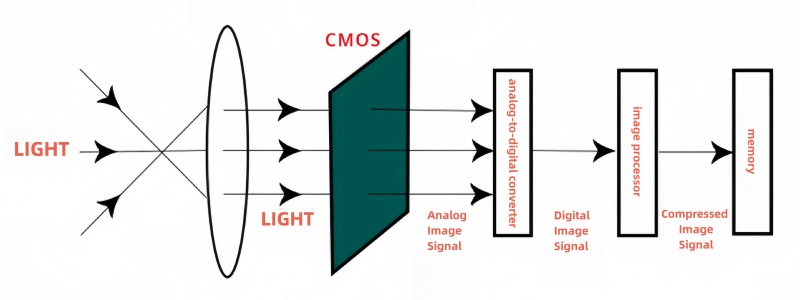You might be surprised to learn that lasers can be even brighter than the sun. If a laser beam shines directly into your eye, it can damage your retina and even lead to blindness if exposed for a long period.
Therefore, it’s crucial to exercise caution when using lasers, especially to prevent them from shining into anyone’s eyes, particularly those of children. Children’s eyes are still developing and can be highly susceptible to damage from strong light sources, potentially leading to vision problems or even blindness.
While our eyes are delicate, cameras are electronic devices composed of electrical components and mechanical parts, making them less fragile than our eyes. So, why can a seemingly robust camera be damaged by lasers?
The process of camera imaging shares many similarities with the way our eyes perceive light. Light is composed of photons, which converge through the camera lens and reach the image sensor within the phone. This sensor then converts these photons into a visible image. As light strikes the image sensor, each photosensitive element detects the light intensity, transforming the optical signal into an electrical signal. Through a series of signal processing steps, this electrical signal is converted into a digital image.

Lasers, on the other hand, exhibit exceptional directionality and collimation. When a lens focuses a laser beam onto a tiny spot, the energy density at that point becomes extremely high. If this concentrated laser light directly hits the phone’s lens, the rapid accumulation of heat can cause the optical components (prisms, lenses, etc.) within the lens to expand or deform, affecting image quality. In severe cases, the image sensor itself may be damaged. Damage to the sensor can manifest as a dead pixel, a bright spot, or even a horizontal or vertical line of dead or bright pixels.
